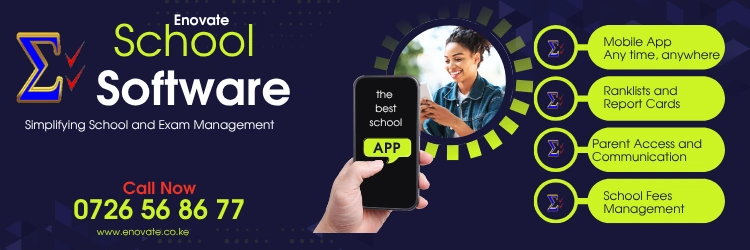- Download Grade 8 Past papers with marking schemes.
- Grade 8Topical questions and detailed lesson notes.
- Opener, Midterm and end term Exams in PDF and Word.
Grade Eight marks a critical milestone as students prepare to finalize their junior school journey. Exams at this level should evaluate students’ mastery of advanced concepts, their ability to think critically, and readiness for high school.
1. Curriculum-Driven Grade 8 Assessments
Grade Eight syllabi emphasize comprehensive understanding and preparation for high school. Key focus areas include:
- English: Analytical comprehension, creative and argumentative writing, and grammar nuances.
- Mathematics: Advanced algebra, geometry, probability, and trigonometry fundamentals.
- Science: Chemistry basics, human physiology, and principles of energy and forces.
- Social Studies: Deeper dives into history, governance, and global geography.
Each question should align with curriculum outcomes and objectives, ensuring comprehensive coverage of the year’s content.
2. Grade 8 Exams Question Formats
Introduce complexity to challenge students’ critical thinking and creativity:
- Problem-solving tasks: Require logical reasoning, such as solving quadratic equations or interpreting scientific experiments.
- Essay questions: Encourage depth in topics like “Discuss the impact of industrialization on modern society.”
- Diagram-based inquiries: Include labeling exercises, like parts of a heart or interpreting geographic maps.
- Scenario-based questions: Test real-world applications, e.g., calculating interest or understanding ecosystem dynamics.
3. Integrate Notes and Class Activities in Exams
Use lesson notes and class activities to develop relevant questions. For instance:
- In science, ask about practical experiments like the effect of heat on different substances.
- In social studies, include questions about historical timelines or current events discussed in class.
4. Grade 8 2025 Past Papers as a Benchmark
Past papers help in understanding the structure, phrasing, and expected standards of Grade Eight exams. Our website provides a rich collection of these papers with marking schemes to simplify your planning process.
5. Grade 8 Mid Term: Clarity and Organization
Grade Eight exams are typically lengthier and more demanding. To maintain student focus:
- Use headings, bullet points, and diagrams to organize content.
- Ensure clear instructions and logical sequencing of questions.
6. Marking Schemes for Grade 8 Exams
Marking schemes should emphasize fairness and attention to partial credit:
- Reward logical approaches even if the final answer is incorrect.
- Use rubrics for essay and creative tasks to evaluate structure, grammar, and argumentation quality.
Support with Our Resources
Our website offers essential tools to make Grade Eight exam preparation easier, including:
- Past papers with marking schemes.
- Topical questions and detailed lesson notes.
- PDF and Word formats for flexible editing.
These resources empower educators to create exams that meet high standards while preparing students for their academic future.
Conclusion
Grade Eight exams should be a culmination of junior school learning, promoting both academic rigor and confidence. By leveraging the curriculum, lesson notes, and past papers, educators can design exams that are both challenging and achievable.

